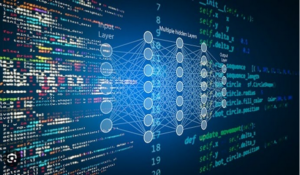
In the 21st century, data is often referred to as the new gold, and data science is the alchemy that turns it into knowledge and insight. It’s a blend of art and science, a multifaceted discipline that transforms raw data into actionable information. In this article, we embark on a journey to explore the fascinating world of data science, its core principles, applications, and the impact it has on various industries and our daily lives.
What is Data Science? :
At its core, data science is the multidisciplinary field that extracts knowledge and insights from structured and unstructured data. It marries various techniques from statistics, computer science, domain expertise, and visualization to uncover patterns, trends, and valuable information hidden within datasets. The field encompasses data collection, cleaning, analysis, interpretation, and the communication of results in a way that can guide decision-making.
The Art of Data Visualization :
One of the artistic aspects of data science lies in data visualization. Presenting complex data in a comprehensible and visually engaging manner is an art form. Effective data visualization can turn numbers into compelling stories, enabling non-technical stakeholders to grasp key insights. Tools like Tableau, Power BI, and D3.js are invaluable for creating interactive charts, graphs, and dashboards that make data more accessible and actionable.
Data Science’s Scientific Foundation :
The scientific side of data science involves the rigorous application of statistical and machine learning techniques. Data scientists utilize algorithms to build models that can predict future trends, classify data, and provide recommendations. These models are trained on historical data and tested to ensure their accuracy and reliability. The iterative process of refining and optimizing models is akin to the scientific method, where hypotheses are tested and refined based on empirical evidence.
Real-World Applications:
Data science is ubiquitous in modern society. From healthcare to finance, from retail to transportation, its applications are far-reaching. In healthcare, it aids in disease prediction and personalized treatment plans. In finance, it powers algorithmic trading and fraud detection. E-commerce platforms use it for recommendation engines, while transportation companies employ it for route optimization and predictive maintenance. Data science even impacts entertainment by tailoring content recommendations on streaming services, making it a fundamental aspect of our digital lives.
Challenges and Ethical Considerations :
The rapid growth of data science has brought forth ethical considerations and challenges. Data privacy and security are paramount, as is the potential for biased algorithms. It is crucial to address these concerns and develop ethical frameworks that guide the responsible use of data. Moreover, data scientists need to ensure that their models and predictions are transparent, understandable, and free from bias, promoting fairness and accountability in data-driven decision-making.
Impact on Industries :
Data science has disrupted traditional business models and transformed industries. In healthcare, it has led to more accurate diagnoses and personalized treatments. In agriculture, it optimizes crop yields. In marketing, it powers targeted advertising. The finance sector relies on data science for risk assessment and fraud prevention. The transformative impact of data science can be seen in every sector, from energy to education, opening new avenues for innovation and efficiency.
The Data Scientist’s Toolkit:
To be an effective data scientist, one must wield a diverse toolkit. This includes programming languages like Python and R, data manipulation libraries, statistical analysis tools, and machine learning frameworks. Moreover, data scientists should have a deep understanding of the domain they work in to ask relevant questions and interpret results in context. Collaboration and communication skills are equally important, as data scientists often work in multidisciplinary teams, translating their findings into actionable insights for decision-makers.
The Future of Data Science:
As technology evolves and data generation continues to surge, the future of data science is bound to be even more exciting. Artificial intelligence, automation, and the Internet of Things (IoT) will play pivotal roles in shaping the landscape. Ethical concerns will become more prominent, and data scientists will need to champion transparency, fairness, and responsible practices. Data science’s ongoing evolution promises to unlock new frontiers of understanding and drive innovation in myriad fields.
The art and science of data come together in the multifaceted discipline of data science, enabling us to harness the power of information like never before. With its profound impact on industries, daily life, and its potential for future innovation, data science stands as a testament to the limitless possibilities that emerge when we explore the depths of data, transforming it into knowledge and wisdom.
